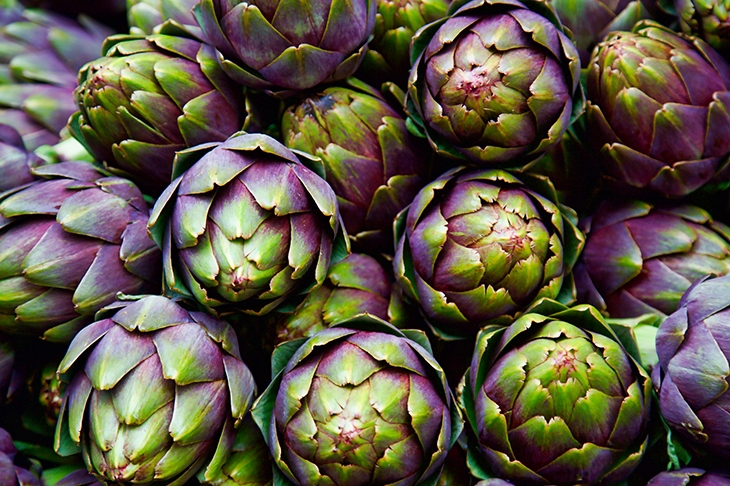My husband has been growling: ‘You cross-legged hartichoak.’ He tries it on obstructive pedestrians hypnotised by their mobile phones. He thus hopes, optimistically, to utter insults while avoiding any ism that could get him into trouble.
This imprecation hartichoak he took from the mouth of Young Tom Strowd, a Norfolk man, in The Blind-Beggar of Bednal Green, a play from 1600 by John Day (a Norfolk man) and Henry Chettle (in and out of debtors’ prison). The artichoke jokes went down so well that two sequels were performed, though their text, sadly or not, does not survive. Artichoke displays a modest degree of folk etymology. It came into English in the 16th century from words already obscure in their derivation. We borrowed it from the northern Italian form articiocco, in which ciocco was taken to mean ‘stump’. In reality the word had come, via Spanish alcachofa, from the Spanish Arabic al-karsufa.
The meaning of the Arabic is not apparent, beyond the prefix al-, ‘the’, as in alcohol and algebra. As soon as the plant received a Latin name, etymologising variants appeared such as articoctus or articactus, suggesting it was something to be cooked, or resembling a cactus. The French called it artichaut or artichaud, as if it was essential to eat it warm.
Not to be outdone, the English assimilated the first element, arti, to hearty, like a lettuce, and the second element to choke, since that is what you would do if you ate the thistly centre. Don’t.
The edible part used to be called the card. This derives, like chard and cardoon, from the Latin cardus, ‘thistle, artichoke or cardoon’. It’s amazing how these plant names shift, considering how rooted the vegetables are.
From its enjoyment of the seeds of thistle, artichoke or cardoon, the goldfinch got the Latin name Carduelis carduelis. Remarkably, another Latin word for thistle, silybum, produced the Spanish word for goldfinch, jilguero, after more than one phonetic transformation. Yet I’ve seen it claimed on the internet that jilguero comes from sirgo, ‘piece of silk’, since the bird’s plumage is as bright as silks. Popular etymology is still at work trying to give transparent meanings to obscure words.





Comments